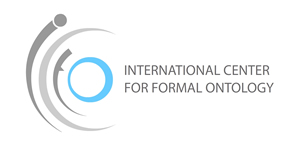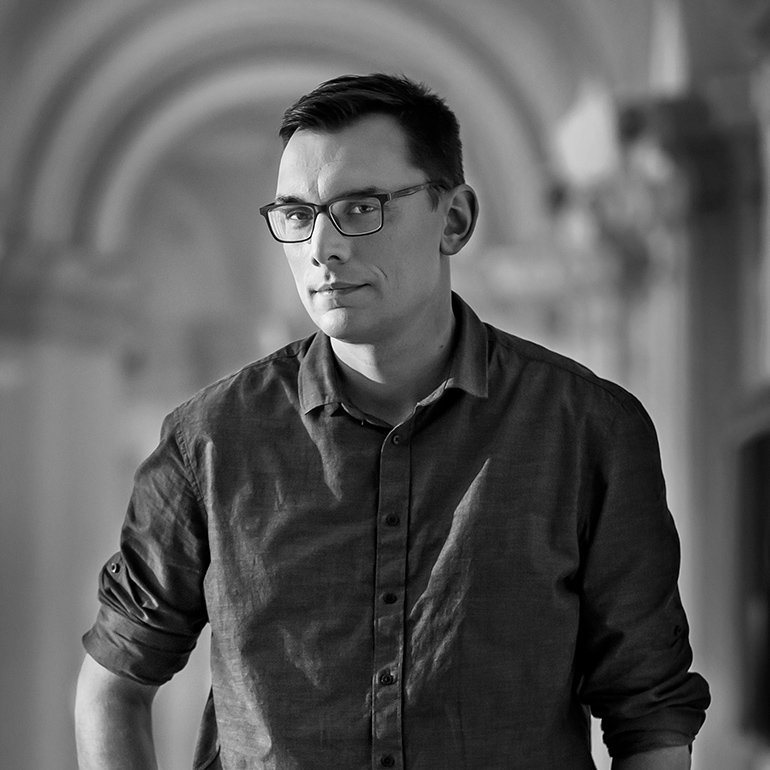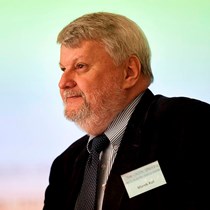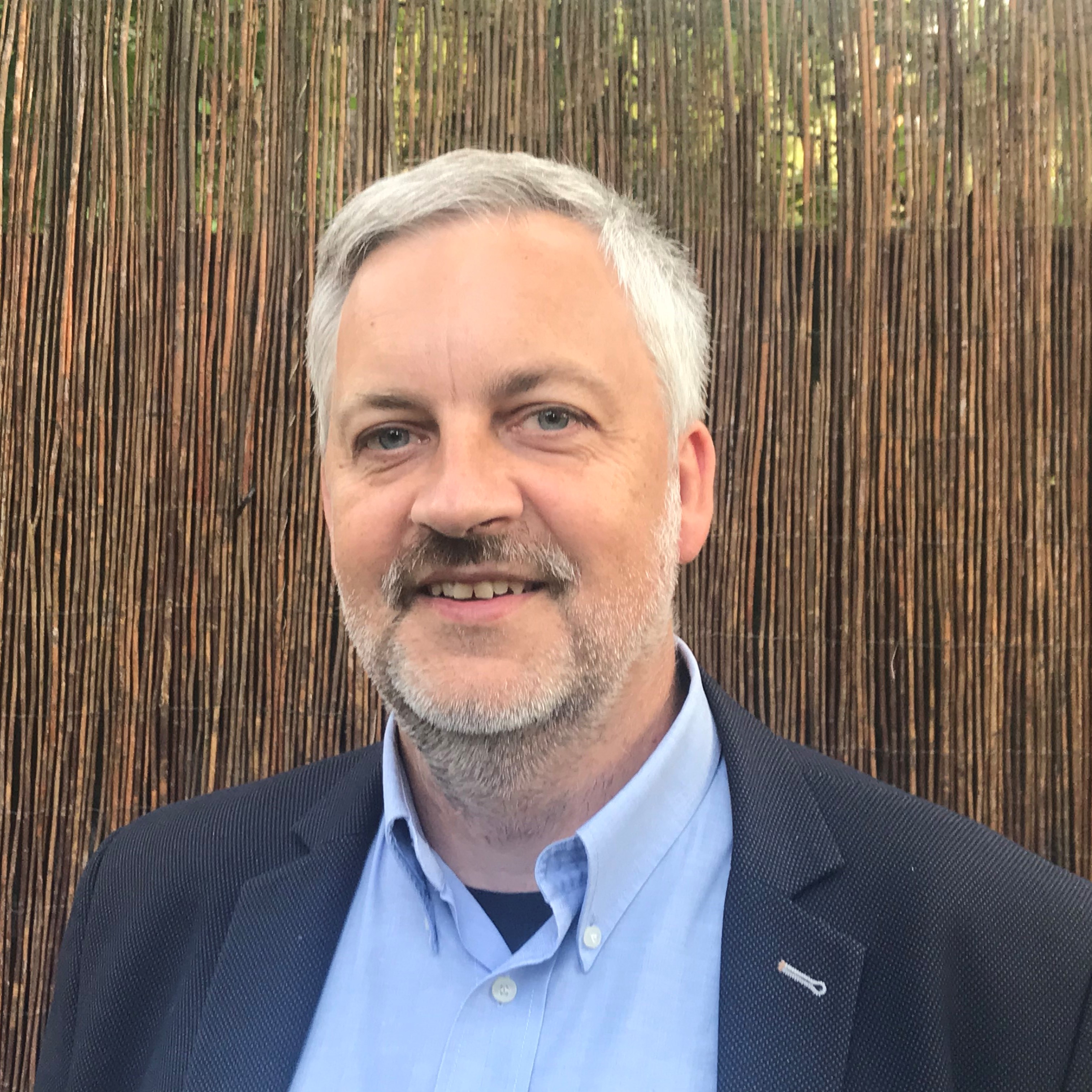Internal Associates
(scholars employed at the Warsaw University of Technology)
Andrzej Biłat is a professor of philosophy at the Warsaw University of Technology. His main field of research is formal philosophy, especially philosophical logic, philosophy of formal sciences, and formal ontology. He is the author of four books and over sixty papers. PI of four research projects (KBN, MNiSW and NCN). Since December 2015 – editor-in-chief of the “Studia Semiotyczne“. One of his last articles, entitled The correctness and relevance of the modal ontological argument was published in Synthese. He was a council member for the 2015-2020 term of the ICFO Council as a representative of the Faculty of Administration and Social Sciences, Warsaw University of Technology.
Katarzyna Budzynska Katarzyna Budzynska is an associate professor (senior lecturer) at the Faculty of Administration and Social Science in the Warsaw University of Technology (Poland). She is head of the Laboratory of The New Ethos at the International Centre for Formal Ontology (ICFO). She is also an honorary senior lecturer in the Centre for Argument Technology at the University of Dundee, UK. She studies argumentation and persuasion linking philosophy, rhetoric and natural language processing. She has authored and co-authored 2 books and over 90 peer-reviewed papers including 22 papers in international journals such as Synthese, Argumentation and Artificial Intelligence. Her projects have attracted over €1.4m (6.3m PLN) grant funding in in Polish, Swiss, British, German and European programs. In 2008, she co-founded, and in 2008-17 coordinated the activities of a nationwide initiative ArgDiaP. Its main goal is to support the cooperation of representatives of the Polish School of Argumentation. Since 2008, ArgDiaP has organized a series of biannual one-day conference meetings, supported several research projects and publishing initiatives in the area.
Hajo Greif is a philosopher working in the field of history, philosophy, and social studies of science and technology. Hajo Greif works as a research assistant professor at the Faculty of Administration and Social Sciences at Warsaw University of Technology. His philosophical work focuses on evolutionary and computational accounts of cognition. Key topics include situated cognition and cognitive artefacts (‘4E’ cognition, smart environments); naturalism in the philosophy of mind (teleosemantics, evolution of cognition); history and philosophy of cognitive science (AI vs cybernetics). All strands of his work share the leitmotif of evolutionary naturalism, broadly construed. These strands converge in his “habilitation” project (that peculiar Germanic “second PhD”), which was completed in 2015. The thesis is titled “Environments of Intelligence“, and presents a take on the role of the environment, and of the natural information it provides, in human cognition. Particular attention is paid to the cognitive bearing of technologies known as ‘smart environments’. For more information see the website: https://hajo-greif.net/. He is a member of the Philosophy of Computing research group at the ICFO.
Marcin Koszowy is a philosopher working in the areas of logic, philosophy of language, pragmatics, and artificial intelligence. As a member of the Laboratory of The New Ethos at the ICFO, he has been focusing on the study of appeals to authority and expert opinion, arguments involving ethos (the character of the speaker), linguistic and cognitive aspects of rephrasing, and corpus analysis of argumentative texts for the purpose of argument mining. He has published 2 books and over 30 peer-reviewed papers including articles in journals such as Argumentation, Logic and Logical Philosophy, Pragmatics and Society, International Review of Pragmatics, and AI & Society, co-edited 10 journal issues (including the special issue of the journal Argumentation devoted to ‘The Polish School of Argumentation’), participated in 2 research projects funded by the Polish National Science Center and delivered 15 invited talks. Koszowy serves as chair of the steering board of the ArgDiaP organisation that coordinates the activities of the Polish research community in the area of argumentation, dialogue and persuasion. Since 2013, he has been collaborating with the Centre for Argument Technology (ARG-tech).
Zbigniew Król is a philosopher who works at the Faculty of Administration and Social Sciences, Warsaw University of Technology, and at the Institute of Philosophy and Sociology, Polish Academy of Sciences. His research concerns hermeneutics, the hermeneutical philosophy of mathematics and science, the history of mathematics and science, logic, mathematics, ontology and epistemology. He is an author of many papers and three monographs: Plato and the Foundations of Modern Mathematics: the Concept of Number by Plato (2005), Mathematical Platonism and Hermeneutics (2006) and Platonism and the Development of Mathematics. Infinity and Geometry (2015). One recent joint paper Ontological Pluralism and Multi-Quantificational Ontology with Józef Lubacz was published in Foundations of Science. He is one of the initiators of the ICFO. He was a two-term Dean (2012-2016 and 2016-2020) of the Faculty of Administration and Social Sciences of the Warsaw University of Technology and a member for the term 2015-2020 of the ICFO Program Council.
Marek Kuś is a professor at the Centre of Theoretical Physics of the Polish Academy of Sciences in Warsaw and was a professor at the Warsaw University of Technology, Faculty of Administration and Social Sciences. He is a theoretical physicis. He was the director of the International Center for Formal Ontology from 2017 until the end of 2021. He is a member of Academia Europea. His scientific interests include: mathematical physics, in particular the application of geometric and group-theoretic methods (simplectic geometry, algebraic geometry, Lie group theory) in quantum computer science, quantum chaos and the basics of quantum mechanics. He is also interested in formal methods in philosophy and the application of methods of exact sciences in humanities. He is the author of over 150 original articles.
Józef Lubacz was a professor at the Warsaw University of Technology, Faculty of Electronics and Information Technology for over 40 years. He is currently a research professor at the Faculty of Administration and Social Sciences. He holds degrees in engineering and mathematics. Although most of his research activity was focused on Information and Communication Technology (ICT), during the last two decades he also conducted research on non-technological aspects of ICT and Information Society, philosophy of science and technology, and on epistemic and poietic processes. At the Warsaw University of Technology he served as the head of the Division of Teleinformatics (1987-2002), the dean of the Faculty of Electronics and Information Technology (2002-2005); the director of the Institute of Telecommunications (2008-2016). For many years he was a member of the Committee of Electronics and Telecommunications of the Polish Academy of Sciences. He was elected the chairman of the General Council for Science and Higher Education of Poland for the 2010-2013 term. Prof. Lubacz chaired the Center’s first Program Council from 2015-2020.
Roman Z. Morawski (*1949) is Professor of Measurement Science at Warsaw University of Technology. His research contributions (more than 50 projects, over 200 publications and patents) are mainly concerned with measurement data processing in biomedical engineering; he has authored, in particular, a monograph entitled Methods for Measurement Signal Reconstruction (1989) and a fundamental paper “An application-oriented mathematical meta-model of measurement” (Measurement, 2013). His academic interests include, moreover, the issues related to organisation of higher education, research methodology and research ethics; he has authored ca. 100 publications in this area, in particular – two books: Ethical Aspects of Research in Empirical Sciences (Warsaw University Press, 2011) and Technoscientific Research: Methodological and Ethical Aspects (Walter De Gruyter, 2019).
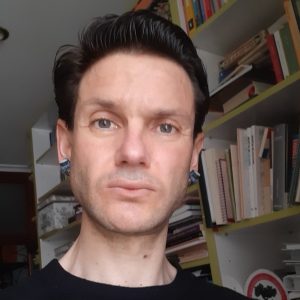
Pedro Naranjo is a theoretical physicist and a philosopher of physics. He earned a PhD in theoretical particle physics in 2010 at the Universities of Huelva and Patras. After realising this field would not satisfy his conceptual struggles, he set out to understand the major riddles of space, time and the quantum, which has led him into broader philosophical questions. His research efforts revolve around relational approaches to physics in general, and quantum gravity in particular, with an special interest in its metaphysical implications. Since 2020 he is an assistant researcher in the project “Self-subsisting structures in quantum gravity” at the Warsaw University of Technology, Faculty of Administration and Social Sciences and a member of the Philosophy of Physics research group at the ICFO. Also, that same year he started PhD studies in philosophy at the University of Warsaw.
Pedro Naranjo
Bartłomiej Skowron is a platonic philosopher. Skowron defended his philosophical thesis at the University of Wrocław in 2012, received also BA in Mathematics from the University of Wrocław, Faculty of Mathematics and Computer Science, in 2011. He is interested in mathematical philosophy (in particular in formal ontology and topological philosophy, theory of ideas, category theory), phenomenology and ethics. He was elected a fellow of the Academy of Young Scholars and Artists in 2012, received the Burgen Scholarship in 2013 from the Academia Europaea. Since 2015 Skowron is an assistant professor at the Faculty of Administration and Social Sciences at the Warsaw University of Technology (from 2017 to 2020 served as as Vice-Dean for Research). In 2021, he published the book Part and Whole: Towards Topo-Ontology (in Polish: Część i całość. W stronę topoontologii). The book is published in open access and is available here. In 2019 he edited three books: Polish Contemporary Ontology (De Gruyter), Category Theory in Physics, Mathematics, and Philosophy (with Marek Kuś) (Springer Proceedings in Physics) and Virtual Objects (with Paweł Stacewicz) (Warsaw University of Technology publishing house). Most of his articles are available here. He is a member of the ICFO Program Council. The most recently published paper (with K. Wójtowicz) is Throwing spatial light: on topological explanations in Gestalt psychology.
Paweł Stacewicz is a philosopher, computer scientist, popularizer of mathematics. In 1993 he graduated from the Faculty of Technical Physics and Applied Mathematics (WUT), in 1993-2000 he cooperated scientifically with the Institute of Computer Science Basics (PAS), in 2009 he defended his doctorate at the Faculty of Philosophy and Sociology (UW), in 2010 and 2011 he published two monographs on the philosophy of computer science, in 2013 he started working as an assistant professor at the Faculty of Administration and Social Sciences of WUT. His current interests focus on: philosophy of computer science, worldview of computer science, philosophy of mind, research on artificial intelligence and mathematical basics of computer science. Since 2011 he is co-editing – together with Professor Witold Marciszewski – the academic blog “Cafe Aleph” (blog.marciszewski.eu), where he published and discussed a number of texts from the borderland of philosophy, computer science and mathematics. He is a member of the Philosophy of Computing research group at the ICFO.
Michał Stelmach is a philosopher. He defended his doctoral dissertation On Wittgensteins Transcendental Logic in 2015. He is interested in phenomenology, philosophy of dialogue and analytical philosophy. In his work he focuses mainly on the fields of ontology, logic, epistemology and ethics. Especially interested in the formal ontology of Roman Ingarden. Michał Stelmach is the author of works on the philosophy of Ludwig Wittgenstein (e.g. Wittgenstein and apriori [2010], The Nature and Basics of Wittgenstein’s Meta-Science (2011), On Wittgensteins Transcendental Logic. Logic-philosophical studies [2018]). He has published several articles and chapters in monographs on values, arguments, war ontology, and philosophy in psychiatry. He is also interested in theology (especially mystical theology) on the one hand, and science (and their interaction) on the other.
Antonio Vassallo is an assistant professor at the Warsaw University of Technology, Faculty of Administration and Social Sciences. He holds a M.Sc. in physics from the University of Catania, and a Ph.D. in philosophy from the Universities of Lausanne and Warsaw. Not surprisingly, he is interested in investigating the conceptual issues lying at the intersection between physics and philosophy. In particular, his research has so far dealt with the metaphysical issues related to spacetime in general relativity and quantum gravity, and the debate regarding the interpretations of quantum theory (with a special focus on the primitive ontology approach to quantum physics). He is the coordinator of the Philosophy of Physics research group at the ICFO. He is also the principal investigator in the research project “Self-subsisting structures in quantum gravity“, funded by the Polish National Science Centre (OPUS grant 2019/33/B/HS1/01772).
Paula Quinon is a research assistant professor at the Faculty of Administration and Social Sciences at Warsaw University of Technology. Paula Quinon’s competences include philosophy of mathematics, philosophy of language, epistemology, logic and cognitive science; she also holds a Master of Arts degree. Her latest article, Can Church’s thesis be viewed as a Carnapian explication? was published in Synthese. She is a member of the Philosophy of Computing research group at the ICFO.
Frank Zenker is a research assistant professor at the Faculty of Administration and Social Sciences at the Warsaw University of Technology. He works in Social Epistemology, Cognitive Science, and the Philosophy of Science. Most of his ongoing research deals with overcoming the replication crisis in the empirical social and behavioral sciences, on which he leads a corresponding research project. He has attracted funding for several research projects, has published widely in international peer-reviewed journals, and maintains a wide ranging network of international contacts, including scholars in North America, Europe, and China, where he visits on a regular basis. Among others, he currently leads the workgroup on norms of public argument of the EU COST Action APPLY, European Network for Argumentation and Public Policy Analysis (CA17132), co-organizes the international section of the Symposium on Reasoning, Argumentation, and Communication at SWUFE, Chengdu, PRC. He is also a steering committee member of the European Conference on Argumentation (ECA). Click here for his pre-prints and a CV.
